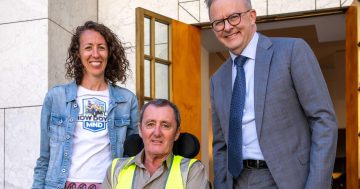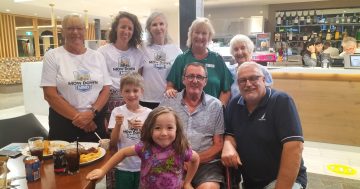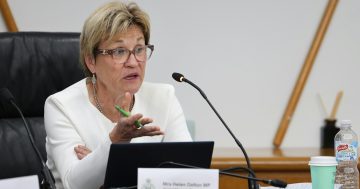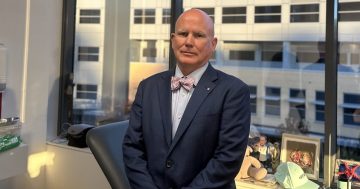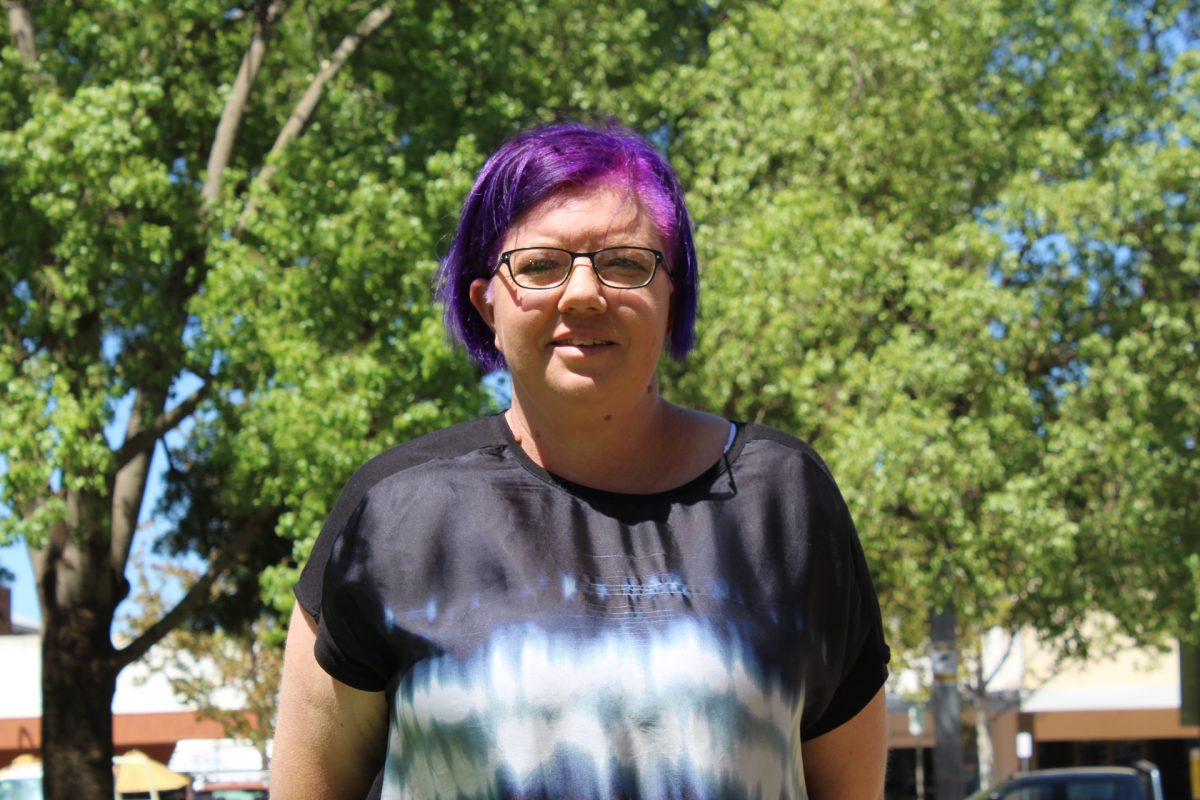
Tania Magoci says she won’t give up her fight for MND funding. Photo: Oliver Jacques.
If a fatal illness impacted Sydneysiders at seven times the rate of the national average, the NSW Government would be doing everything in its power to investigate and address this issue.
But the lack of action by the Labor, Liberal and National parties on the abnormally high prevalence of motor neurone disease (MND) in the Riverina suggests rural lives don’t matter as much to them.
Federal and state governments continue to refuse to fund studies into why rates are so high here, and won’t support independent researchers by properly monitoring, recording and tracking cases.
Often called the bastard disease, MND is a serious illness that damages a person’s nervous system, weakening muscles such that a sufferer loses their ability to walk, speak, swallow and breathe, before they ultimately lose their life.
A 2015 Macquarie University study indicated Wagga, Griffith and Leeton had MND rates seven times higher than those in cities. Brilliant French neuroscientist Gilles Guillemin and his team came to the Riverina to investigate the causes of this bizarre discrepancy, but the previous Coalition government stopped providing any funding, meaning they had to abandon the project in 2020.
“It’s so frustrating,” Griffith hairdresser and MND sufferer Tania Magoci said previously. “If we could find what’s causing the high rates of this illness, we could develop ways of preventing it or helping those suffering.”
Overseas studies suggest exposure to a bacteria known as blue-green algae in waterways over a long period could be a triggering factor linked to high MND rates. Frequent algal blooms in Griffith’s Lake Wyangan have led to speculation that this may be a cause, but a link has not been conclusively proven.
As a third-generation sufferer of the disease, Ms Magoci is desperate to know more. She has spent a decade fighting hard to get the research funded. But she says her calls have fallen on deaf ears. At one point, she was even driving urine samples to Sydney herself to assist with Mr Guillemin’s underfunded study.
In May 2023, the NSW Labor Government made a vague promise of investing $2 million in MND research, though it wasn’t clear if this would focus on the Riverina.
Disappointingly, that funding wasn’t allocated to Macquarie University or Mr Guillemin, who’d already developed a body of evidence and preliminary findings. Rather, it was to be put out for a fresh tender to be given to someone who’d have to start all over again.
More than a year later, we still don’t know what’s happened to this money. Region contacted NSW Health this week to find out if, when and to whom this funding would finally be allocated, but the department refused to respond.
The Federal Government has been similarly dismissive.
In March, MND sufferer Warren ‘Woz’ Acott made an 800-km trek on a ride-on lawnmower from Toollen (near Bendigo) in Victoria to Parliament House in Canberra, where he met Prime Minister Anthony Albanese armed with a petition signed by 5300 people asking for MND to be made a nationally notifiable disease – which would oblige government to monitor, record and track cases in each geographical area to give researchers the data they need to discover causes and cures.
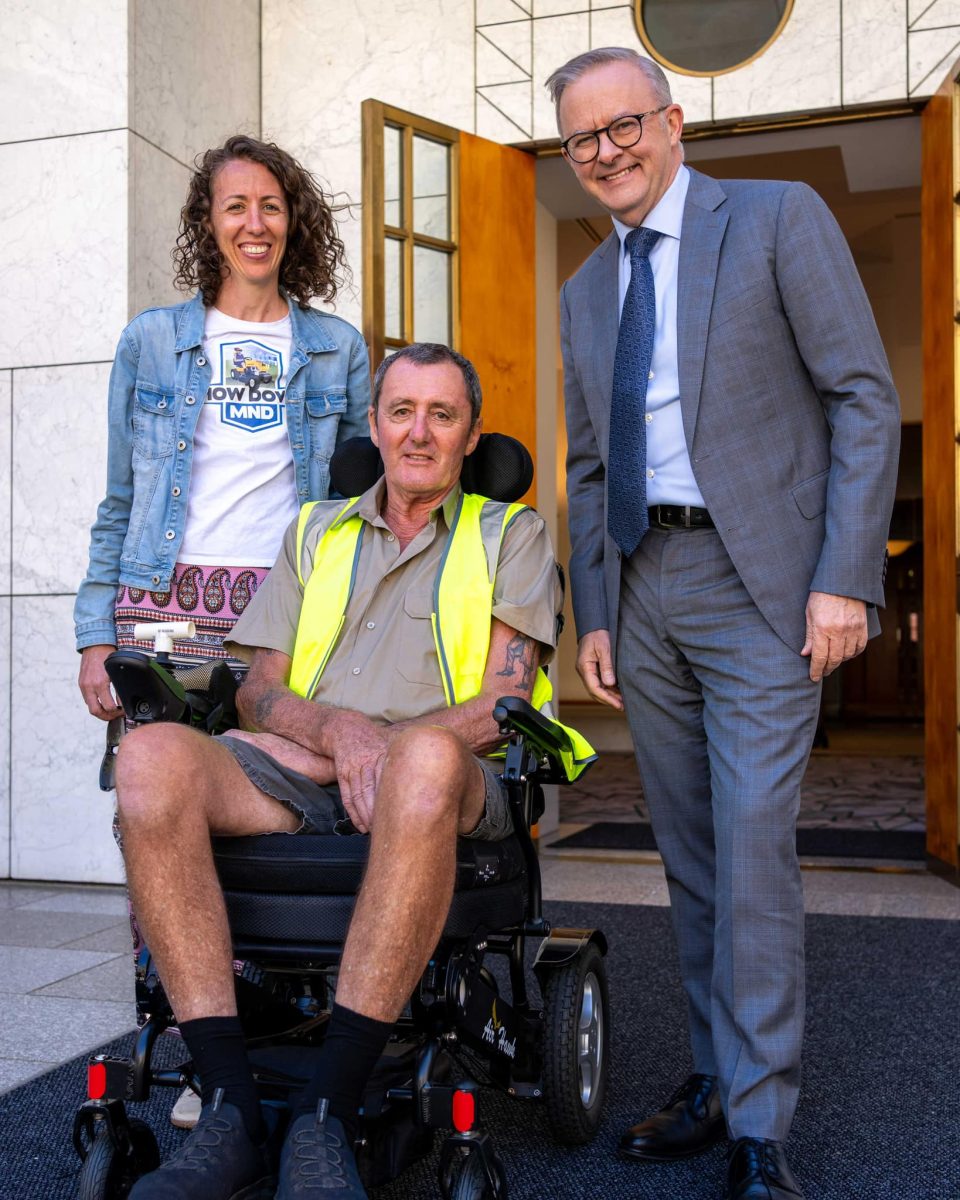
MND sufferer ‘Woz’ Acott and daughter Belinda with Prime Minister Anthony Albanese. Photo: Supplied.
Mr Albanese smiled for the cameras and exchanged some nice words with ‘Woz’, but his government won’t action his request. The Federal Department of Health and Aged Care told Region state governments would need to act first before MND would be added to the federal government list of nationally notifiable diseases it maintains.
The NSW Government has the power to make MND notifiable at a state level, but won’t either.
“Generally, the conditions that are notifiable to the Secretary of NSW Health are infectious diseases, such as COVID-19, which require a clearly defined public health response to limit transmission, which does not apply to MND,” a NSW Health spokesperson said.
This response is hard to fathom, considering cancer is already listed as a notifiable disease even though it’s not contagious.
Perhaps that’s because cancer already impacts thousands of families in major cities.
It seems rural families will continue to watch loved ones die from MND while governments turn a blind eye to the illness until cases start to spike in Sydney.







